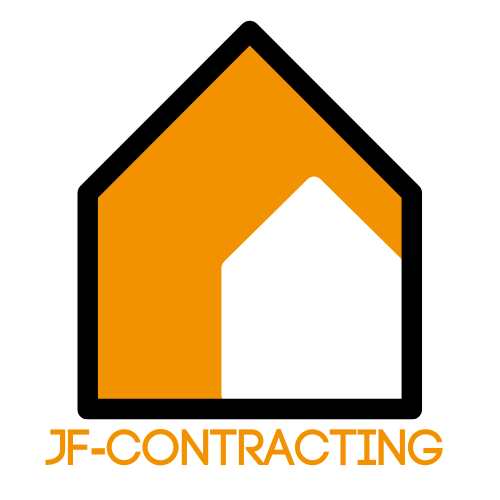In the fast-paced world of real estate, juggling clients, listings, and paperwork can feel like a circus act. Enter CRM automation—your digital ringmaster that keeps everything running smoothly while you focus on closing deals. Imagine a world where follow-ups happen automatically, leads are nurtured without lifting a finger, and your to-do list shrinks faster than a balloon at a birthday party.
With the right CRM tools, real estate agents can transform chaos into order, streamline their processes, and even find time to enjoy a cup of coffee that isn’t lukewarm. It’s not just about saving time; it’s about working smarter, boosting productivity, and ultimately, making more sales. Get ready to discover how CRM automation can turn your real estate business into a well-oiled machine that keeps clients happy and your bank account smiling.
Overview of Real Estate Agent CRM Automation
Real estate agent CRM automation serves as a catalyst for efficiency in daily operations. By centralizing client data, agents gain immediate access to vital information, enhancing decision-making processes. Managing contacts, listings, and transactions becomes streamlined through automated workflows.
Agents can automate follow-ups for leads, ensuring no opportunity slips through the cracks. Tasks such as sending emails, scheduling appointments, and setting reminders happen seamlessly, saving precious time. With automation in place, responding to inquiries becomes quicker and more efficient.
Maintaining organization in paperwork transforms a previously chaotic work environment into a structured system. Information storage becomes intuitive, allowing agents to retrieve relevant data in moments.
Nurturing leads takes on new significance when agents can set personalized communication strategies. Automated messages engage potential buyers or sellers, creating a sense of connection without requiring constant manual effort.
Increased productivity frequently translates into higher sales numbers. Agents experience less burnout, as CRM automation alleviates repetitive tasks and administrative burdens. Adopting a CRM system designed for automation fosters a more balanced workload and better client experiences.
Ultimately, effective CRM automation enables real estate agents to prioritize closing deals without compromising on service quality. The right tools in place can lead to a more successful and fulfilling career in real estate, making CRM automation an invaluable asset to any agent’s toolkit.
Benefits of CRM Automation for Real Estate Agents
CRM automation significantly boosts efficiency and productivity for real estate agents. Agents can streamline their workflow, allowing them to concentrate on closing deals and enhancing client relationships.
Improved Lead Management
Effective lead management becomes seamless with CRM automation. It enables agents to capture leads from various sources and organize them in a centralized system. Tracking lead interactions becomes straightforward, helping agents prioritize follow-ups based on engagement. Automation improves responsiveness by sending timely communications, ensuring potential clients receive prompt attention. Key metrics like lead conversion rates can be easily analyzed, allowing agents to refine strategies. This level of organization leads to higher conversion rates and increased sales opportunities.
Enhanced Client Communication
Clear and timely communication remains vital in real estate, and CRM automation facilitates this aspect. Agents can automate emails and reminders for property showings, updates, and follow-ups, keeping clients informed throughout the process. Personalization options enable agents to tailor messages based on client preferences, fostering stronger relationships. Frequent engagement through automated touchpoints builds trust, ultimately leading to higher client satisfaction. Consolidating client data in one place ensures agents have easy access to relevant information, enhancing their ability to address client needs promptly.
Key Features to Look for in CRM Automation
Effective CRM automation facilitates smooth operations in the real estate sector. Agents should focus on specific features that enhance their productivity and client engagement.
Customization Options
Customization options empower agents to tailor workflows and dashboards to meet unique business needs. Agents can adjust field settings to collect relevant client information, streamlining data entry processes. Personalized templates for emails and reports allow for a consistent branding experience while communicating with clients. Automated task assignments based on specific criteria enhance team collaboration by ensuring everyone knows their responsibilities. Furthermore, the ability to set custom reminders for follow-ups or important dates is crucial for maintaining client relationships.
Integration Capabilities
Integration capabilities ensure seamless connectivity with other essential tools and platforms. Agents benefit from solutions that connect CRM systems with email platforms, lead generation tools, and scheduling software. A centralized platform reduces data entry duplication, saving time and minimizing errors. Moreover, integration with marketing automation tools supports targeted campaigns based on client behavior. It enhances the overall efficiency of operations, allowing agents to focus on closing deals instead of managing disconnected systems. Investing in a CRM that offers robust integration options is vital for maximizing productivity in the fast-paced real estate market.
Best CRM Automation Tools for Real Estate Agents
Various CRM automation tools exist to streamline real estate processes, making it essential for agents to choose the right one. Each tool offers distinct features that enhance productivity and client engagement.
Tool Comparisons
Popular CRM options like HubSpot, Salesforce, and Follow Up Boss stand out in the real estate sector. HubSpot excels in user-friendly interfaces and marketing automation, catering to agents needing an integrated solution. Salesforce offers highly customizable features suitable for large teams, allowing multifaceted workflows. Follow Up Boss specializes in lead management, simplifying the process of tracking client interactions. Comparing these platforms based on specific business needs ensures agents maximize their investment and operational efficiency.
User Experiences
User feedback highlights the effectiveness of various CRM tools. Many agents praise HubSpot for its intuitive design, stating ease of use significantly boosts daily operations. Salesforce users appreciate its customization capabilities, noting the ability to mold the tool to align with their unique workflows. Numerous reviews point out Follow Up Boss’s focus on lead nurturing, which enhances conversion rates through timely follow-ups. Collectively, these insights emphasize choosing a CRM tool based on personal experience and functional preferences contributes to overall success in real estate.
Implementation Tips for Real Estate Agent CRM Automation
First, define clear objectives for CRM automation. Setting specific goals helps agents understand what they need to achieve with automation. Identifying key tasks such as lead nurturing, appointment scheduling, and follow-ups ensures focus on high-priority activities.
Next, choose the right CRM tool that fits business requirements. Examining features such as customization, integration capabilities, and user-friendliness plays a crucial role in selecting an effective solution. For example, agents seeking simple workflows may prefer user-friendly options like HubSpot, while those needing extensive customization might favor Salesforce.
Training staff on the selected CRM system enhances overall success. Offering training sessions guarantees that team members understand how to utilize tools effectively. Engaging in practical demonstrations helps clarify complex functionalities, making the transition smoother.
Additionally, set up automated workflows for repetitive tasks. Automating routine activities like sending emails and reminders can minimize manual effort. Establishing triggers for specific client actions facilitates timely communication, ultimately improving client engagement.
Integrating the CRM with existing software solutions can streamline operations. A seamless integration eliminates data entry duplication and maintains accurate records across platforms. Choosing CRM systems that support API connections reduces operational friction and enhances efficiency.
Lastly, regularly review and optimize automated processes. Analyzing performance metrics and client interactions allows agents to adjust workflows based on observed results. Continuous improvement ensures that automation remains aligned with shifting business objectives, maximizing effectiveness over time.
Embracing CRM automation is a game changer for real estate agents. It not only streamlines daily operations but also enhances client relationships and boosts productivity. By automating tasks like follow-ups and lead nurturing, agents can focus on what truly matters—closing deals and providing exceptional service.
Investing in the right CRM tool tailored to specific needs can lead to significant improvements in efficiency. With features that support customization and integration, agents can optimize their workflows and reduce manual efforts. As the real estate landscape continues to evolve, those who leverage CRM automation will find themselves at a distinct advantage, ready to meet the demands of a fast-paced market.








